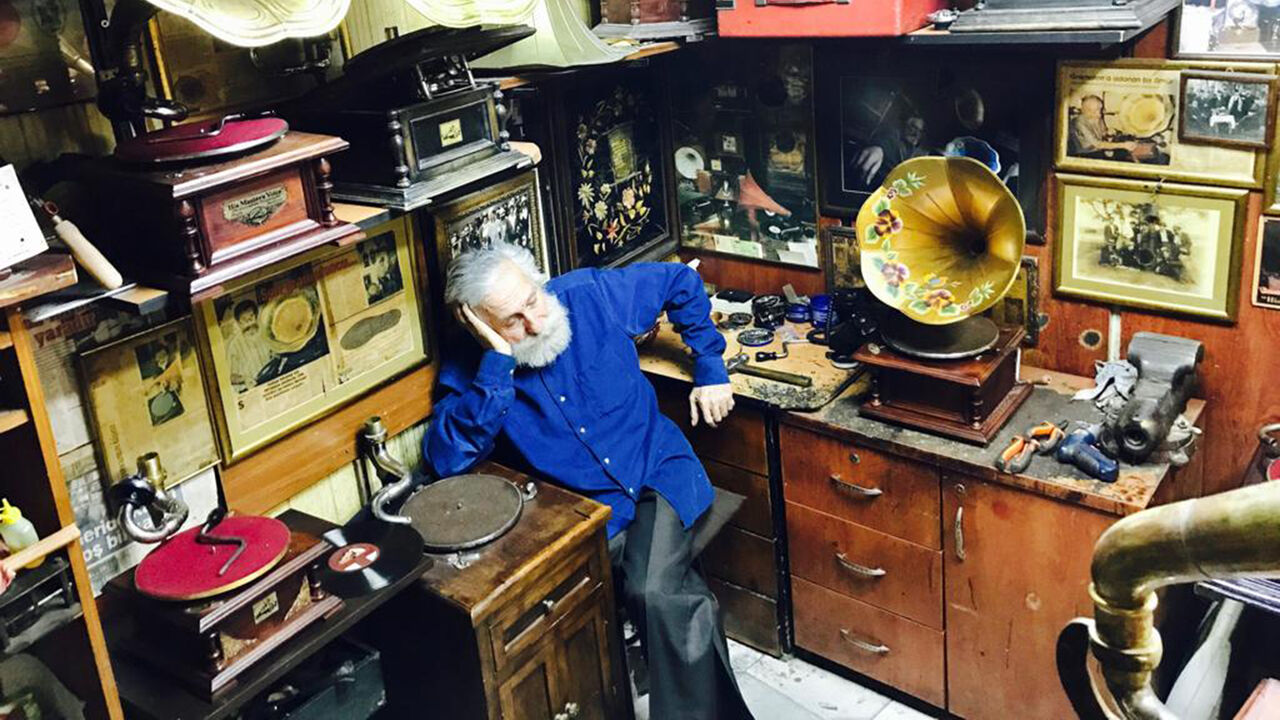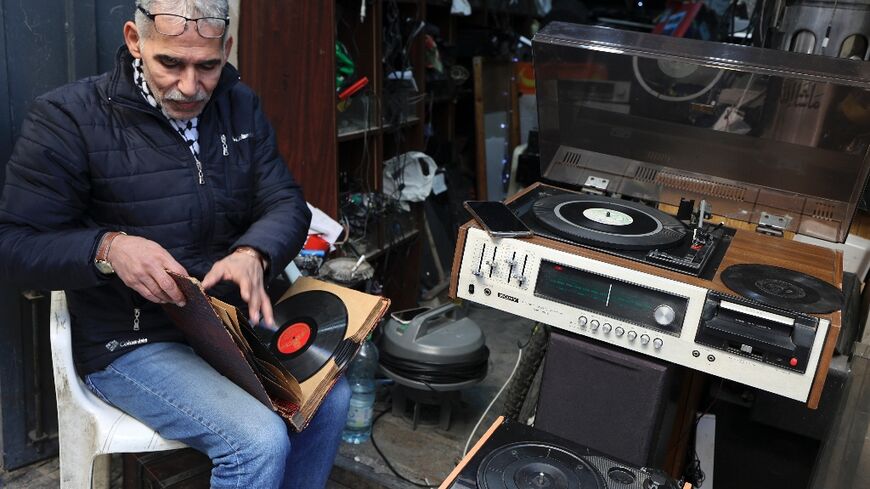Istanbul’s last gramophone repairman keeps records turning
The last gramophone specialist in Istanbul works contentedly in his tiny shop inside the Grand Bazaar, a perfect escape from modern consumerist culture.

Inside his tiny shop at Istanbul's historic Grand Bazaar, Gramafon Baba (Papa Gramophone in Turkish) says he barely recognizes his hometown anymore so he spends as much time as possible inside his little time capsule, interacting with his precious reminders of the past.
Here, the last gramophone repairman in Istanbul fixes broken gramophones and finds peace listening to old records, surrounded by gramophones, tools and equipment, some of it rusted. His walls are covered with ripped, faded newspaper profiles on him and signed record covers. His space is situated by one of the bazaar’s main gates, standing as a testament to different times.









